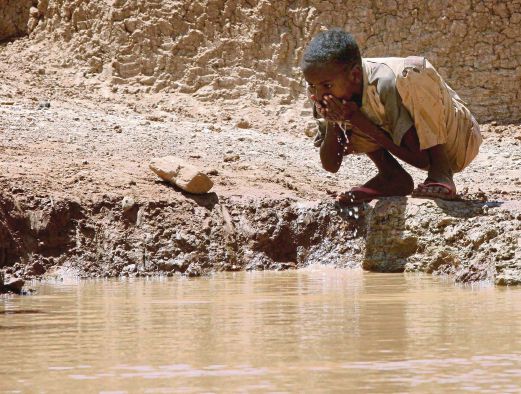Water, the gift of life
Professor Tan Sri Dato' Dzulkifli Abdul Razak
Learning Curve: Perspective
New Sunday Times - April 8, 2016
The first World Water Day was “declared” by the United Nations General Assembly on March 22, 1993. It dated back to the 1992 UN Conference on Environment and Development, where an international observance for water was recommended. But, more than two decades later, the issue of water, globally, is still a growing concern.
This is despite World Water Day, an annual affair, being observed by countries all over the world to be more aware about water-related issues and be inspired to make a difference.

When the Department of Irrigation and Drainage (JPS), in conjunction with the event, organised a multifaith discourse on water, the response was lukewarm. Not surprising, since most Malaysians consider water a non-issue and its availability is taken for granted. But, discussion was lively.
There seems to be a general consensus among the faiths on the importance of water for sustaining daily human livelihood.
In Islam, water is regarded as a gift from the Almighty to promote life of His Creations, not limiting to just humans. In Christianity, water is among the earliest mentioned in the Scripture. Similarly, in Buddhism and Hinduism, water is a vital resource that helps the faith find its footing in places where water sources are plentiful.
More so given that water is an essential part of religious rituals, from the beginning of birth to, ultimately, death.
That being the case, it still does not address the global problem of water shortage and waste. In other words, why are believers of the faiths falling short in asserting the judicious use of water? Many reasons were given, but most seem to point to the lack of enforcement despite the numerous programmes launched by the government over time.
This shows that the level of awareness is still low; when the low level of awareness becomes engrained as “bad” habits, to reverse it becomes an uphill task as is the case today.
While the focus of the discussion was on the callous attitude of the younger generation, which seemed to take water for granted, the older generation is just as much to be blamed for setting the wrong example.
A case in point is the extravagant use of bottled water in almost all situations, including at official meetings and events. Very few, if at all, drink all the water in the bottles. The water in the half-empty bottles is simply thrown away later on.
The volume of the water thrown away could be phenomenal, taking into consideration the number of meetings held daily and the number of people attending them.
Bottled water has become a “wasteful” lifestyle nationwide. While enforcement can be a crucial deterrent, what is more effective is self-assertion and self-restrain. In all great religions, the two are widely advocated among followers. Belief systems worthy of their names promote self-discipline among the believers. In short, the tenets purveyed by such systems can have a more positive and lasting effect for the “believers” over human-made laws.
That being the case, faith-based organisations should play a greater role collectively to complement efforts in issues related to water, or other vital resources which are part of the eco-system and which are needed to ensure a sustainable future.
Simply put, even if water resources are fully secured, it will not matter if the ecosystem continues to be imbalanced resulting in unabated global crises. In turn, phenomena like global warming continue unabated.
Consequently, as predicted, there will be an increase in seawater level submerging all low-lying areas and territories due to massive flooding with increasing frequency and severity. It is ironic that our failure to control the use of water will eventually see the very same element being turned into an uncontrollable force of destruction.
Those who are familiar with the story of Prophet Noah would realise how the “Big Flood” came to cause untold destruction in response to human’s negligence of their role to preserve and conserve what has been endowed by God to them. In a sense, we are about to witness this happening again if we ignore all the signs.
Dzulkifli Abdul Razak is honorary professor at the University of Nottingham and principal fellow at the Faculty of Leadership and Management in Universiti Sains Islam Malaysia
